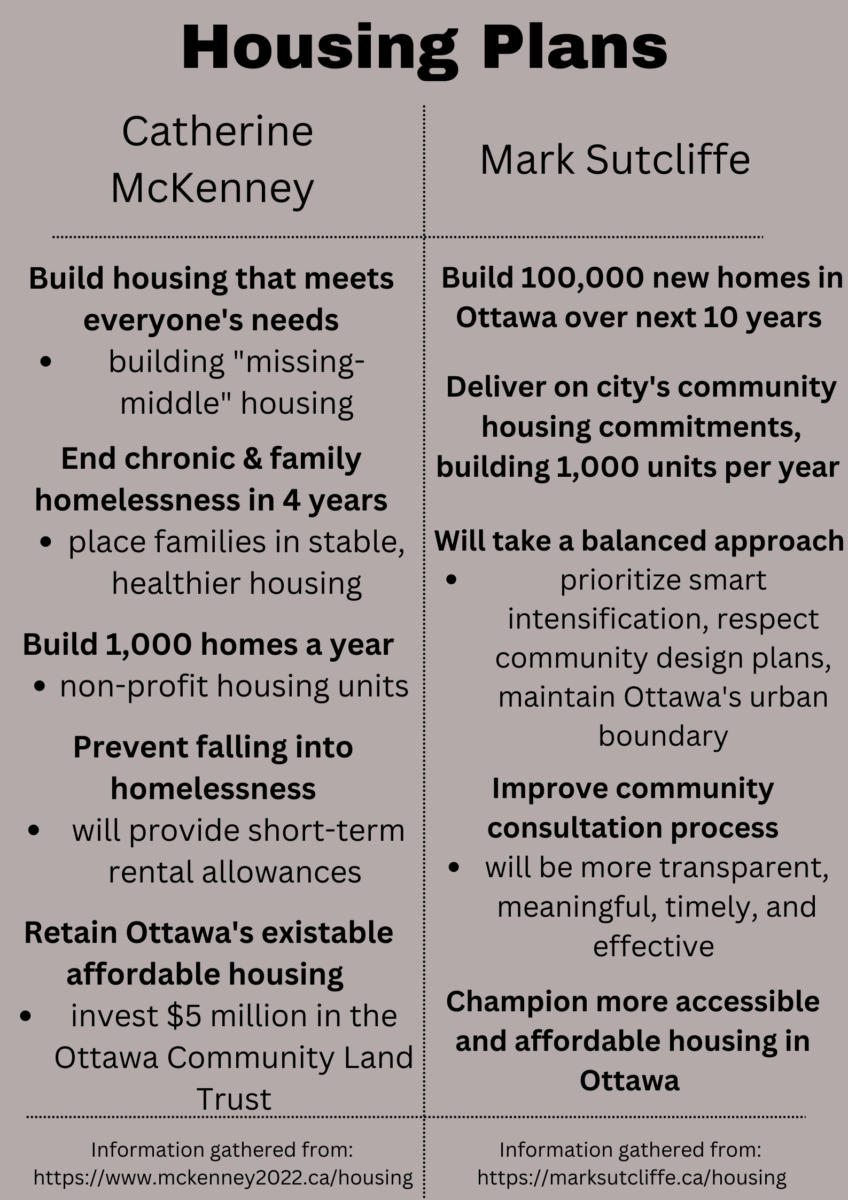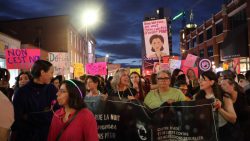The race to be Ottawa’s next mayor is heating up as election day, Oct. 24, looms closer. For the first time since 2010, Jim Watson will not be on the ballot, guaranteeing the city a new leader. There are 14 candidates running, but there’s no doubt a few stand out as serious contenders.
According to a Sept. 14 phone survey conducted by Mainstreet Research, Somerset Ward Coun. Catherine McKenney was the early leader with 34 per cent of respondents expressing support. Journalist and businessman Mark Sutcliffe held 20 per cent support, while former mayor and Ontario cabinet minister, Bob Chiarelli stood third with 11 per cent.
However, considering the survey only tapped 777 people and was conducted more than a month before election day, the viewpoints of voters were certainly subject to change.
A Nanos poll released Oct. 6 showed a tightening race, though just more than 500 local residents were surveyed. McKenney, a city councillor for the past eight years, was still leading with support from 29 per cent of respondents, but Sutcliffe had closed the gap with 24 per cent support. Chiarelli, a former Ottawa mayor, Ottawa-Carleton regional chair and Liberal MPP, was backed by nine per cent of those polled. Perhaps most importantly, 35 per cent of respondents were undecided.
But a solid consensus seems to have emerged around this election's main issue. The survey found that creating affordable housing is the most important challenge facing the city, with 31 per cent of respondents naming it the No. 1 priority. Improving transit and cutting taxes are next on the list of key issues.
So it’s no surprise housing affordability is among the key planks in the platforms of all three frontrunners. On Sept. 14, McKenney announced their plan for housing affordability, including a bold statement to end chronic and family homelessness in four years.
'I have been working in housing and homelessness for most of my working life. The plan I put forward will work.'
— Catherine McKenney, candidate for mayor of Ottawa
Chronic homelessness refers to those who have spent six months of the past year homeless. Often these individuals have substance abuse problems or chronic physical or mental illnesses.
There are about 500 chronically homeless people in Ottawa right now, but McKenney said they have no doubt their goal will be accomplished on time, if elected.
About 340 families will be moved out of temporary shelter in motels and into housing, as well, they pledged.
“I have always felt very strongly that as a city, if we make it a priority, we can end chronic homelessness," McKenney said in an interview.
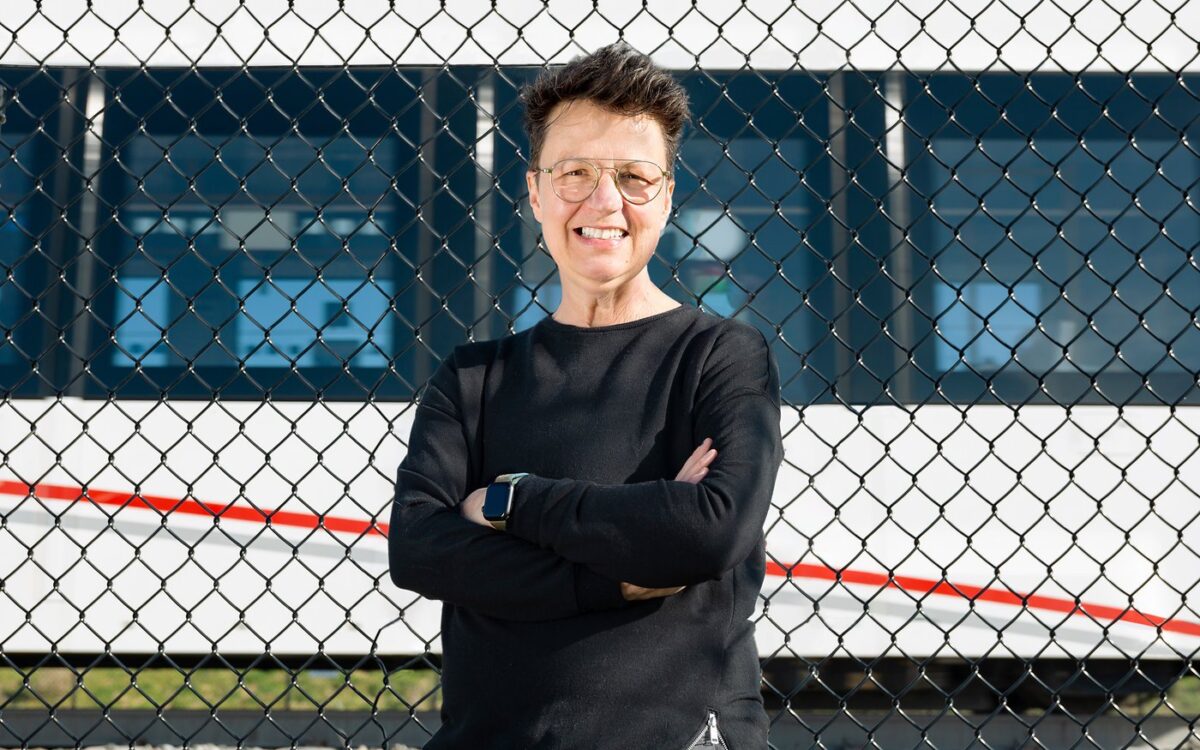
Housing affordability is also a priority for Sutcliffe. He has pledged to support the construction of 100,000 new homes in the city in the next 10 years.
Sutcliffe says McKenney’s plan lacks detail and ambition, while offering no real solutions to Ottawa’s housing crisis.
In response, McKenney rebuffed that: “I have been working in housing and homelessness for most of my working life. The plan I put forward will work.”
Sutcliffe released a housing plan of his own on Sept. 16 — two days after McKenney.
“Ottawa’s population is growing rapidly,” said Sutcliffe in the news release. “This is a once-in-a-generation opportunity for our city to realize its potential for growth; to build a smart, connected city that we can all take pride in.”
The plan promises to respect community design plans without expanding Ottawa’s urban boundary. Additionally, Sutcliffe’s plan will create 1,000 community housing units per year, “through targeted building incentives, zoning changes and the deployment of city lands.”
This goal would nearly double the pace that the City of Ottawa has delivered in recent years. “Having a place to call home should not be a privilege,” Sutcliffe said in the release.
Regarding chronic homelessness, something that McKenney plans to eliminate within four years, Sutcliffe's plan would involve moving away from temporary or emergency support and towards suitable transitional and supportive housing.
Horizon Ottawa, a municipal-focused grassroots organization, has released multiple statements within the past month regarding the upcoming election. The organization announced on Aug. 30 that it will be endorsing McKenney to be the next mayor.
"Catherine has been one of the most progressive voices at City Hall, supporting initiatives to push for more housing affordability and ending homelessness," the organization said.
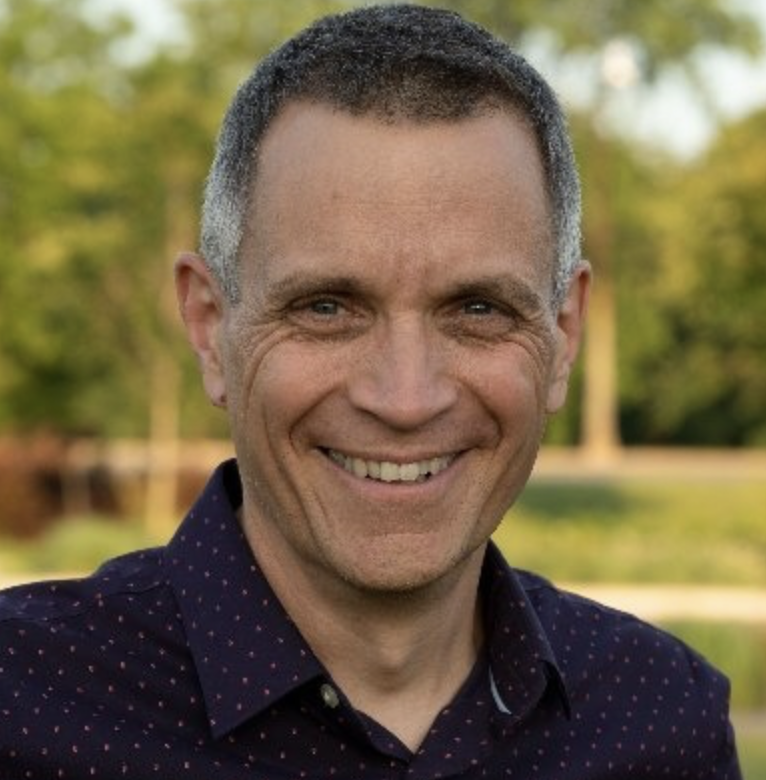
More recently, the organization has called out Sutcliffe for hosting a cash-for-access fundraiser. Horizon Ottawa is calling for campaign finance reform as it advocates that reducing money in politics will create fairer elections.
Not long after, the Sutcliffe campaign released a statement hinting that McKenney was accepting funding from third-party advertisers, such as Horizon Ottawa.
Horizon Ottawa quickly denied these claims and stated that the organization's hope this election is to inform voters about candidates' platforms and encourage a higher voter turnout.
'Ottawa’s population is growing rapidly. this is a once-in-a-generation opportunity for our city to realize its potential for growth; to build a smart, connected city that we can all take pride in.'
— Mark Sutcliffe, candidate for mayor of Ottawa
Jason Burggraaf, executive director of the Greater Ottawa Home Builders Association, said decisions about housing made by the new mayor will affect Ottawa's growth for the coming decades.
The non-partisan association is not publicly backing any particular candidate, Burggraaf said, adding that the GOHBA is committed to working with whoever wins on election night.
Affordable housing is also on the list of top priorities for candidate Bob Chiarelli. However, topics such as transportation, finances and health care seem to have more detailed plans on his website.
"It's incumbent on those who are going to be in the position to make those kinds of decisions to really ensure that, not just the current residents, but future residents of Ottawa have the housing supply that they need," said Burggraaf.
The provincial government has also announced plans to support the construction of 1.5 million homes in Ontario within the next decade.
Burggraaf argues that there is no downside to having too much housing supply. An abundance of supply would lessen the impact that factors such as interest rates and financing have on people trying to afford a home, said Burggraaf.
Burggraaf said his association would like to see about 15,000 housing units of all ranges built annually over the next 15 years to keep up with the expected surge in Ottawa's population. He also noted that updated statistics point toward a deficit in the range of housing options in Ottawa without a housing surge.
The decisions that we make today are going to affect the scope of housing that's going to be available 10 or 20 years from now. That's why I think it's so important to make those right decisions today."
— Jason Burggraaf, executive director, Greater Ottawa Home Builders Association
"The decisions that we make today are going to affect the scope of housing that's going to be available 10 or 20 years from now," said Burggraaf. "That's why I think it's so important to make those right decisions today."
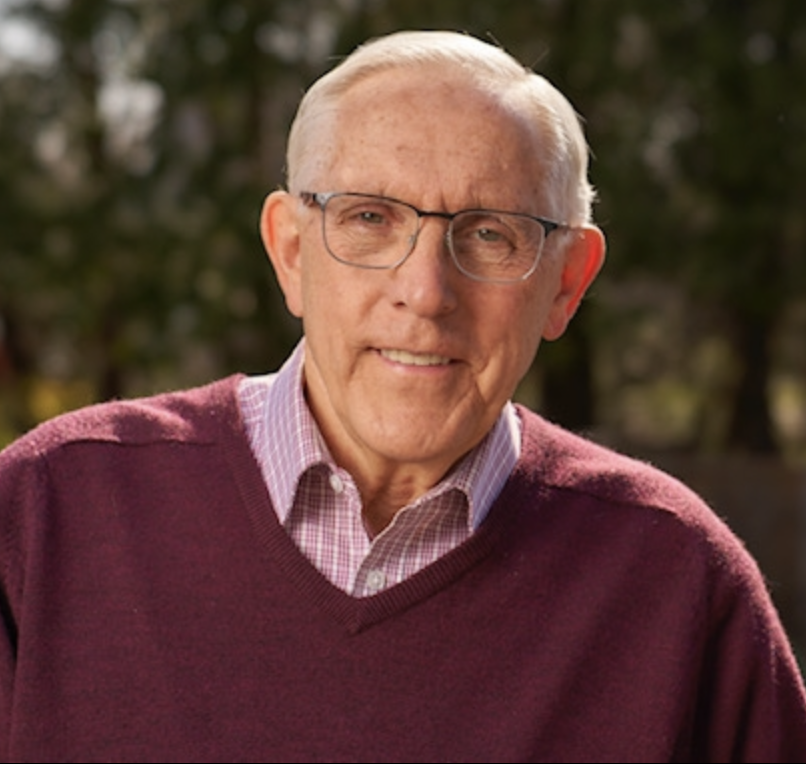
Chiarelli says he will urge federal and provincial governments to help lower the cost of housing. Surplus land owned by the city would also be used for construction of affordable housing if Chiarelli is elected. Additionally, he will ask council to increase the budget allocation for public and non-profit housing.
The other candidates running for mayor are: Brandon Bay, Bernard Couchman, Graham MacDonald, Ade Olumide, Param Singh, Mike Maguire, Celine Debassige, Gregory Jreg Guevara, Nour Kadri, Zeb Chabib and Jacob Solomon.
Eligible voters can cast their ballots at a specified location on voting day. To be eligible to vote, you must reside in Ottawa, have Canadian citizenship, and be 18 or older. To vote in person, one piece of ID must be provided showing your name and address. Election results will be declared no later than Oct. 28 and winning candidates will take office Nov. 15.

